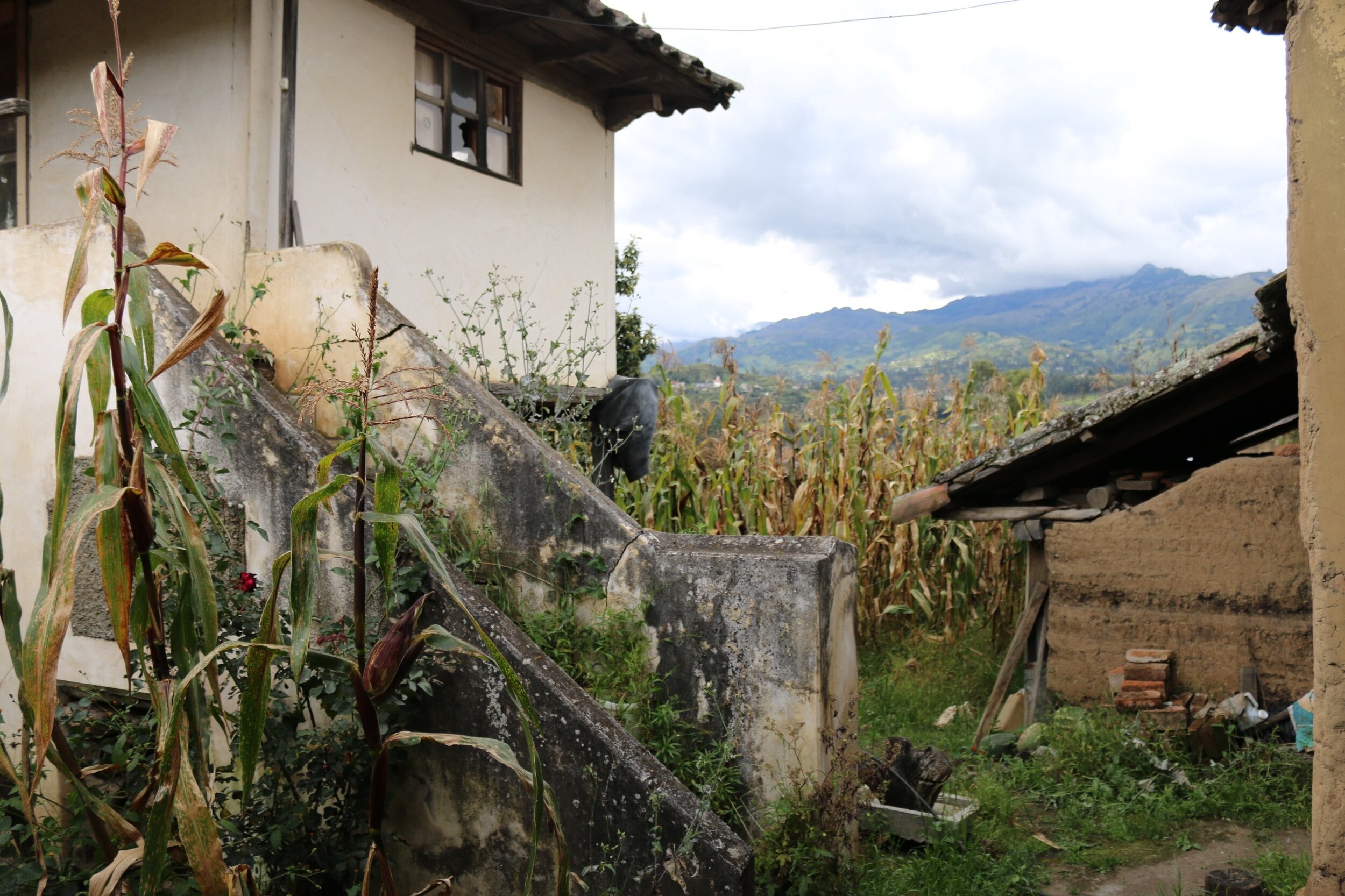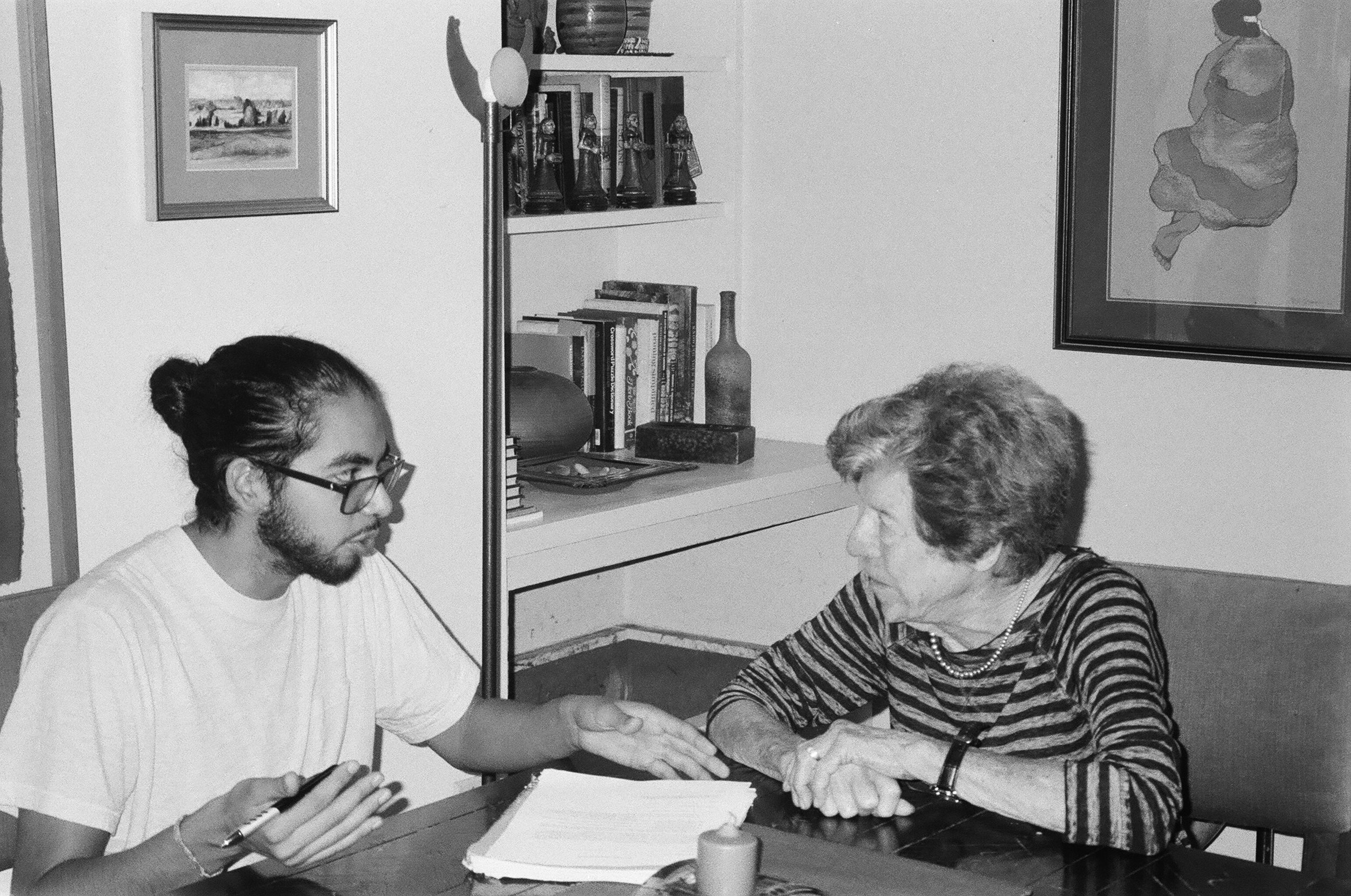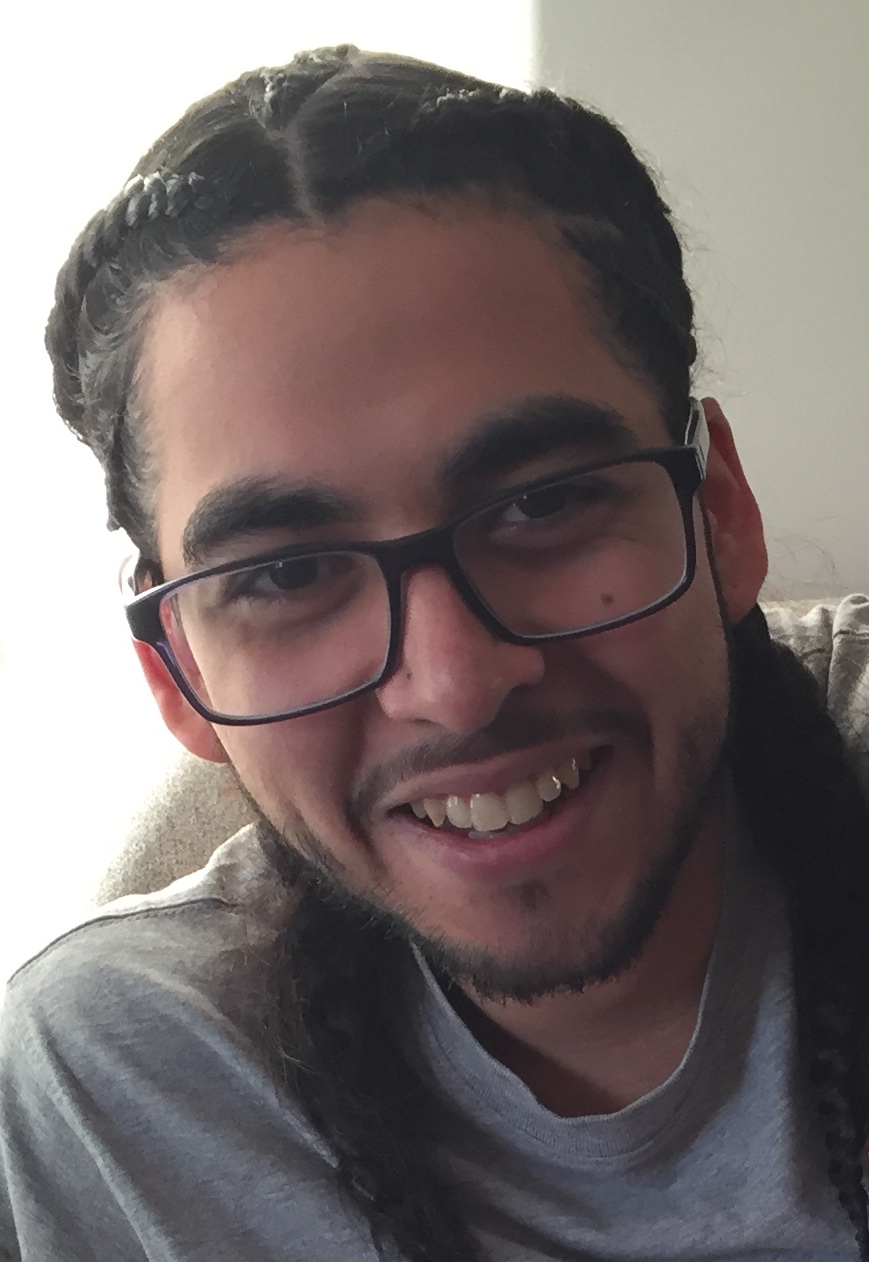What do a 4 am wake-up time, the base of a pyramid, and the origin of a mathematical graph have in common? In Liu Chen’s post on the workshop led by Dr. Alexis Pauline Gumbs, they reflect on priorities in oral history practices, intuition, and the value of darkness.
Read MoreHi, I’m Zack Daniel Schiavetta, of the 2020 OHMA cohort, and for this blog post I’m writing about applying utilitarian ethics, which seeks to provide the maximum good for the greatest number of people, to oral history to make the field accessible to as many people as possible.
Read MoreOn October 24, Dr. Kahente Horn-Miller, of the Mohawk Nation, gave a powerful sharing about her ancestors, culture, and connection to the earth through monologue, song, and dance during the presentation of Standing with Sky Woman: A conversation on cultural fluency. In this post, current OHMA student, Francine D. Spang-Willis, considers the method of transferring Indigenous knowledge to both Indigenous and non-Indigenous peoples through storytelling as an oral history method. She also explores oral history as ceremony and ceremony as oral history.
Read MoreOral history has been a practice in academic spaces for a short time, but has existed in indigenous cultures and oral traditions for many, many years. Dr. Alexis Gumbs @alexispauline explores in she work topics such as: elders, listening, embodiment and even learning from marine mammals. Noor Alzamami takes a deeper look at the connections between animism and oral history in this post after reflecting on Dr. Alexis Gumbs presentation.
Read MoreDuring the second OHMA workshop, Newest Americans: Stories from the Global City, co-founder and director Tim Raphael presented an exciting possibility for the activation of oral history archives: collaborative multimedia and social media platforms. In this blog post, Thu Anh Le explores the unique nuances of this creative storytelling process with the reflection of her advocacy works in Vietnam, and contemplates further implication of oral history as a discipline that challenges our current understanding of academic legitimization and epistemology.
Read MoreIn this piece, current OHMA student Eleonora Anedda (2019-2020 cohort) wanders around the ethics of storytelling. Her post was inspired by Tim Raphael’s presentation on his ongoing project Newest Americans, and its multimedia oral history archive.
Read MoreIntro: Dr. Nēpia Mahuika’s September 26th workshop titled “Oral History and Indigenous Peoples: Rethinking Oral History, Methods, Politics and Theories” highlighted the intricate histories and traditions of indigenous communities that the academic field of oral history has begun to recognize. Dr., Mahuika is the author of soon to be published book Rethinking Oral History and Tradition from the Oxford University Press.
Read MoreMaya Garfinkel, Barnard College senior and History major, reflects on the power of naming in queer history-making, inspired by Eric Marcus’ OHMA talk on his project “Making Gay History.”
Read MoreIn November of 2015, Jeffrey H. Brodsky, OHMA alum, announced a generous annual cash prize of $3,000 for an outstanding thesis. The criteria for receiving the award is that the thesis must “make an important contribution to knowledge and exemplify the rigor, creativity and ethical integrity we teach our students.”
We are proud to announce the winner: Nyssa Chow, and Ellen Coon, the runner up. We invite you to consider the resonances between these two theses: in the recreation of the literal voices and memories of powerful women who tend to the living and the dying and all the attendant rituals in between, and who translate the stories that enliven the next generation.
Read MoreIn this post, Brian Sarfo explores how Terrell Frazier's work situates the importance of relationships and humanizing the organizer through sociology and oral history. This article is the first in a three-part series exploring Terrell Frazier’s recent OHMA Workshop Series lecture, “Becoming an Organizer: Narrative, Identity and Social Action.”
Read MoreIn this post, Chinonye Alma Otuonye explores the dialogic space as a mechanism towards a human understanding of the self and history. She reflects on the ways John Kuo Wei Tchen—NYU professor, historian, and curator—decolonizes both space and history within and through his work.
This article is the first in a three-part series exploring Tchen’s recent OHMA Workshop Series lecture, “Below the Grid.”
Read MoreWe are proud to announce that our 2016-2017 OHMA Research Grants have been awarded to current students Robin Miniter (2016) and Fanny Julissa García (2016), who will be exploring the experiences of women who have navigated either American wilderness and patriarchy, or immigration detention and identity formation. Funding and support has been made possible through the GSAS Thesis Research Matching Award program.
Read MoreThe Jeffrey H. Brodsky Oral History Award is given to one student annually whose thesis makes an important contribution to knowledge and most exemplifies the rigor, creativity, and ethical integrity we teach our students.
We are pleased to recognize Benji de la Piedra’s (2014) contributions to advancing the field of oral history and look forward to presenting the award in person at his thesis lecture next month. Please join us for the celebratory event on Tuesday, October 18 at 6:30 p.m. in 509 Knox Hall, co-sponsored by Columbia's Center for American Studies and Alliance for Historical Dialogue and Accountability, where Benji is a fellow this fall.
Read More




![A black and white photograph of Downtown Manhattan taken from the Empire State Building. It was March 2018, a cloudy day in New York. The fog blurred the skyscrapers in the Financial District. There are no humans in this picture, just buildings.[1]](https://images.squarespace-cdn.com/content/v1/50d0a18de4b07abde41656e7/1574204315841-51CKE5U0MJXHAP3RX74Z/Ele.jpg)






